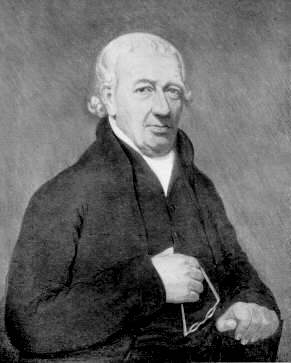Thomas Pole
English physician and artist
Thomas Pole (1753–1829) was an English physician, artist, and educator known for his contributions to the field of obstetrics and his involvement in the Quaker community. He was also an accomplished artist, particularly noted for his detailed anatomical drawings.
Early Life and Education[edit | edit source]
Thomas Pole was born on October 13, 1753, in Philadelphia, Pennsylvania, to a family of Quakers. His early education was influenced by the Quaker principles of simplicity and integrity. Pole's interest in medicine was sparked during his youth, leading him to pursue medical studies.
Medical Career[edit | edit source]
Pole began his medical training as an apprentice to a local physician in Philadelphia. He later moved to England to further his education, studying at the University of Edinburgh, a leading institution for medical education at the time. Pole specialized in obstetrics, a field in which he would make significant contributions.
Contributions to Obstetrics[edit | edit source]
Pole is best known for his work in obstetrics, particularly for his efforts to improve the education and training of midwives. He advocated for the use of scientific methods in childbirth and emphasized the importance of hygiene and proper technique. His teachings and writings helped to professionalize midwifery and improve maternal and infant health outcomes.
Artistic Endeavors[edit | edit source]
In addition to his medical career, Thomas Pole was a talented artist. He created numerous anatomical drawings that were used for educational purposes. His artwork was characterized by its precision and attention to detail, making it a valuable resource for medical students and practitioners.
Quaker Involvement[edit | edit source]
Pole was deeply involved in the Quaker community throughout his life. He was committed to the Quaker values of peace, equality, and social justice. His faith influenced his medical practice, as he often provided care to the poor and underserved populations.
Legacy[edit | edit source]
Thomas Pole's legacy is multifaceted, encompassing his contributions to medicine, art, and the Quaker community. His work in obstetrics laid the groundwork for modern practices, and his anatomical drawings continue to be appreciated for their educational value. Pole's life exemplified the integration of professional excellence with personal integrity and social responsibility.
Related Pages[edit | edit source]
Search WikiMD
Ad.Tired of being Overweight? Try W8MD's physician weight loss program.
Semaglutide (Ozempic / Wegovy and Tirzepatide (Mounjaro / Zepbound) available.
Advertise on WikiMD
|
WikiMD's Wellness Encyclopedia |
| Let Food Be Thy Medicine Medicine Thy Food - Hippocrates |
Translate this page: - East Asian
中文,
日本,
한국어,
South Asian
हिन्दी,
தமிழ்,
తెలుగు,
Urdu,
ಕನ್ನಡ,
Southeast Asian
Indonesian,
Vietnamese,
Thai,
မြန်မာဘာသာ,
বাংলা
European
español,
Deutsch,
français,
Greek,
português do Brasil,
polski,
română,
русский,
Nederlands,
norsk,
svenska,
suomi,
Italian
Middle Eastern & African
عربى,
Turkish,
Persian,
Hebrew,
Afrikaans,
isiZulu,
Kiswahili,
Other
Bulgarian,
Hungarian,
Czech,
Swedish,
മലയാളം,
मराठी,
ਪੰਜਾਬੀ,
ગુજરાતી,
Portuguese,
Ukrainian
Medical Disclaimer: WikiMD is not a substitute for professional medical advice. The information on WikiMD is provided as an information resource only, may be incorrect, outdated or misleading, and is not to be used or relied on for any diagnostic or treatment purposes. Please consult your health care provider before making any healthcare decisions or for guidance about a specific medical condition. WikiMD expressly disclaims responsibility, and shall have no liability, for any damages, loss, injury, or liability whatsoever suffered as a result of your reliance on the information contained in this site. By visiting this site you agree to the foregoing terms and conditions, which may from time to time be changed or supplemented by WikiMD. If you do not agree to the foregoing terms and conditions, you should not enter or use this site. See full disclaimer.
Credits:Most images are courtesy of Wikimedia commons, and templates, categories Wikipedia, licensed under CC BY SA or similar.
Contributors: Prab R. Tumpati, MD

